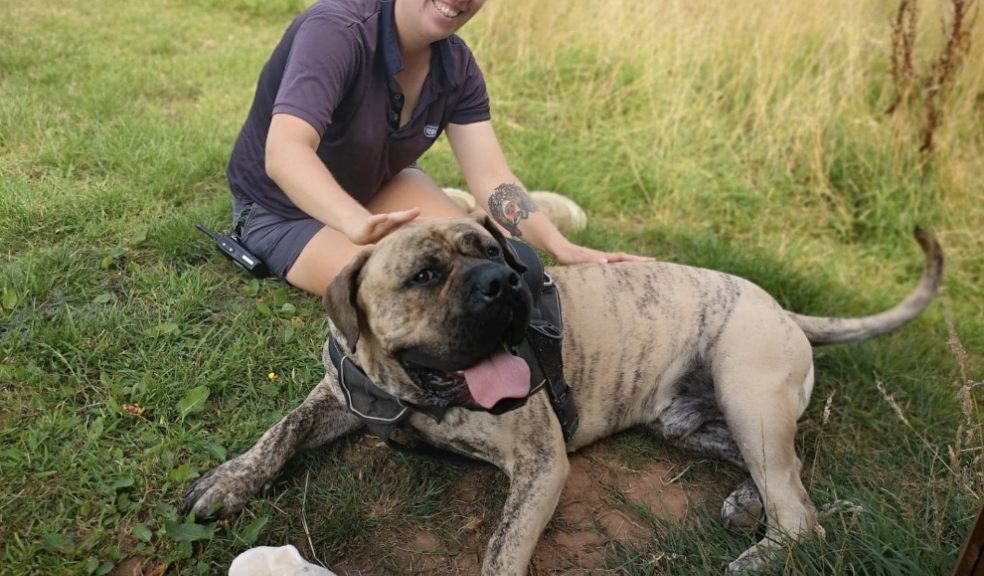
RSPCA campaigns for a change in the law to help the charity rehome neglected and abused animals
The RSPCA is calling for a new animal welfare law which will give animals involved in legal proceedings in the South West the chance to be rehomed much more quickly.
Currently, some neglected and abused pets which are rescued by the RSPCA as part of an investigation cannot be rehomed until the case itself has completed, which sadly means some animals can wait months and even years before finding their second chance.
As part of its Second Chances campaign, the charity is calling for a change in the law which would mean an animal’s future is no longer dependent on court proceedings. A new animal welfare law allowing the charity to rehome an animal following a two-month appeal process would mean the RSPCA can give those pets the forever home they deserve much more quickly rather than waiting for lengthy court cases to conclude.
In 2019, the RSPCA rehomed over 100 animals a day (39,000) - 7,024 in the South West - and around a quarter of these animals were in our care as a result of an investigation. The charity also spent £4.9m in costs for animals involved in prosecutions in 2019.
Shelley Phillips, Senior Campaigns Manager at the RSPCA, said: “Our animal care staff go to great lengths to make sure all the animals in our rescue centres get the care and attention they need and are treated as if they were their own pets but a rescue centre can never substitute the comfort and security of a permanent home with loving owners.
“We know that spending extended periods of time in kennels and temporary accommodation can impact an animal’s psychological welfare. This is particularly true for puppies which are at a critical stage of their development and we are seeing increasing numbers of puppies coming into our care as part of our investigation work.
“This is why we are urging the Governments in England and Wales to make a change in the law which would allow us to rehome a pet after two-months, similar to what has also been proposed in Scotland with the SSPCA.”
Kirsteen Campbell, chief executive of the Scottish SPCA, said: “The introduction of the Animals & Wildlife (Scotland) Act 2020 will be transformational for animal welfare in Scotland as it allows harsher penalties for those found guilty of the worst types of animal welfare offences, and for the ability to rehome animals seized on welfare grounds after three weeks.
“Seeing the tangible benefits this will bring for animal welfare in Scotland, we fully support the positive changes being championed by the RSPCA, our animal welfare partner doing great work in England and Wales. It would be fantastic to see the UK Government follow the Scottish Government’s lead in freeing up vital resources for the RSPCA at a time when they are needed as much as ever.”
Studies using dogs kennelled for a variety of reasons have shown that many animals find kennel life challenging and dogs can show considerable physiological and behavioural distress. Research has also found that for dogs neither bred nor raised in kennels the transition is especially stressful.
Dr Sam Gaines, dog welfare expert at the RSPCA, said: “Sadly, our welfare teams are frequently required to deal with behavioural problems in dogs due to spending long periods in kennels. Some dogs may show their frustration by barking or whining while others will hide away and despite the best efforts of our animal care staff this can have a long-term impact on their wellbeing. Some may even display repetitive or compulsive behaviours which require medication and behavioural treatment.
“The RSPCA goes to great lengths to provide a stable environment for all the pets in our care and work hard to rehabilitate those dogs who struggle with kennel life but we feel that these issues could often be avoided if the animals were rehomed much more quickly.”
Case study
A 13-year-old dog called Molly (below) was rescued by the RSPCA after she was covered in sores and scabs from a severe skin disease which had left her completely hairless. She came into RSPCA care in March 2020 and following the conclusion of her case, as well as some extensive treatment, she was available to rehome in January 2021 and adopted in Devon shortly afterwards.

Regional rehoming statistics
SOUTH WEST - 2019
|
County |
Dog |
Cat |
Rabbit |
Other |
|
Berkshire |
0 |
98 |
28 |
2 |
|
Bristol |
153 |
229 |
24 |
117 |
|
Buckinghamshire |
93 |
835 |
104 |
133 |
|
Cornwall |
54 |
128 |
6 |
26 |
|
Devon |
104 |
344 |
71 |
155 |
|
Dorset |
64 |
244 |
49 |
209 |
|
Gloucestershire |
116 |
155 |
5 |
0 |
|
Hampshire |
196 |
419 |
50 |
206 |
|
Herefordshire |
32 |
32 |
3 |
9 |
|
Isle of Wight |
73 |
132 |
40 |
76 |
|
Oxfordshire |
13 |
34 |
40 |
0 |
|
Somerset |
455 |
976 |
43 |
163 |
|
Worcestershire |
39 |
373 |
32 |
42 |
The RSPCA is asking animal lovers to take action and let the UK and Welsh Governments know that case animals deserve a happy ending. To support this campaign, visit: https://www.rspca.org.uk/getinvolved/campaign/animalrehoming

















